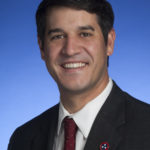Tennessee Press Association calls on Open Records Counsel to ease ban on taking photos of public records
The Tennessee Press Association, writing on behalf of its 125 member newspapers, has requested that the Office of Open Records Counsel update its Model Public Records Policy to reflect that government entities “cannot ban carte blanche the taking of pictures of public records by cell phone cameras.”
The office, which was created by the Legislature in 2008 to provide educational outreach on the public records laws, included in its Model Public Records Policy this model language, with a choice for government entities:
A requestor will [not] be allowed to make copies of records with personal equipment. [Indicate under what circumstances, if any, the Governmental Entity will permit requestors to make their own copies or provide their own storage units.]
Governmental entities were required to adopt a public records policy by July 1 this summer, and many apparently have used the Model as guidance on what to put in their policy. Several entities have adopted language that says “A requester will not be allowed to make copies of records with personal equipment.”
That has led to bans on citizens, including journalists who are reporting news stories, from taking pictures of public records with their cell phones.
Jack McElroy, editor of the Knoxville News Sentinel who sits on the Advisory Committee on Open Government, which was created to advise the Open Records Counsel, wrote to Open Records Counsel Lee Pope on Oct. 17 outlining why the language is inconsistent with the law.
I write on behalf of the Tennessee Press Association to request that your office update the Model Public Records Policy to reflect that government entities cannot ban carte blanche the taking of pictures of public records by cell phone cameras.
It has been reported that the chairmen of the General Assembly’s Joint Government Operations Committee – Sen. Mike Bell and Rep. Jeremy Faison – have made a similar request as the “Model Policy” relates to state government. We respectfully ask that the model policy be changed to provide more reasonable guidance and that it applies to all entities subject to the Tennessee Public Records Act as well.
We agree with Chairmen Bell and Faison that prohibiting the use of “personal equipment” to make copies in all cases is an unreasonable restriction.
Many of our 125 member newspapers believe any interpretation that gives entities discretion to ban use of cameras violates the spirit, if not the letter, of the law on multiple levels, including:
1. Legislation that mandated development of the “model policy — T.C.A. 10-7-503 (g) — states that each entity’s records policy “shall not impose requirements on those requesting records that are more burdensome than state law…”
2. The clear language of T.C.A. 10-7-506 gives the “lawful custodian” of records the right to “adopt and enforce reasonable rules” on making copies. Given the TPRA does not ban photographing of records in all circumstances, the seminal question is whether a discretionary ban on that practice is a “reasonable” rule.
3. Section 506 of the TPRA clearly provides for the practice: “In all cases where any person has the right to inspect any such public records, such person shall have the right to take extracts or make copies thereof…while such records are in the possession, custody and control of the lawful custodian…”
4. The policy seems to be at odds with T.C.A. 10-7-505 (d) which instructs courts to protect the legislative intent of the law, which says it “shall be broadly construed so as to give the fullest possible public access to public records.” Th e Model’s restrictive interpretation of Section 506 seems to counter that intent.
5. Chapter 1179, Public Acts of 2008 created your office and instructed it to consider the practice in question here in establishing the costs of copies of records. T.C.A. 8-4-604 states the OORC “shall consider” …“when large-volume requests are involved, information shall be provided in the most efficient and cost-effective manner, including but not limited to permitting the requestor to provide copying equipment or an electronic scanner.”
We would note that while the policy of the Comptroller as it appears on your website forbids use of “personal equipment” to copy, it mitigates the potential burden of that policy with provisions to waive copy fees when they “do not exceed $25.”
We applaud that. The waiver adds the same convenience and efficiency for citizens – as well as for records custodians — that self-copying affords. We noticed, however, that the Comptroller’s policy does not follow the Model Policy recommended instructions to “indicate under what circumstances, if any, the Governmental Entity will permit requestors to make their own copies or provide their own storage devices.”
I submit these comments as the TPA representative on the Advisory Committee on Open Government and thank you in advance for considering our thoughts.
I hope that you will keep me and other members of ACOG apprised of any developments in this area.
Tennessee Coalition for Open Government submitted a letter earlier this month, urging quick action. “These restrictive and unreasonable policies are being newly adopted and employed throughout the state, putting government entities at risk of violating the Tennessee Public Records Act,” TCOG’s letter said.
TCOG also pointed out that many states already allow photography of public records, including Kentucky, Virginia, Georgia, Maine, Iowa, Florida, Washington, Texas, Arizona and Louisiana. If there are restrictions, they are narrow and limited to when there is a credible threat of damage or tearing.






